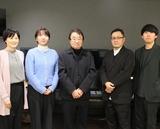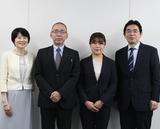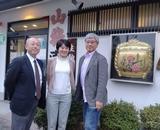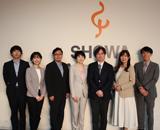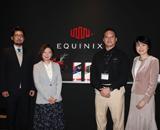September 2015
Arc Communications' External Directors: 10 Years, Looking Back and Forward
External Directors: Chaperones and Cheering Party to the President
Matsuzaki: I heard that the external directors helped with actual work when the company was launched, but what kind of practical task did they carry out?
Ohsato: For example, when an employee would quit, we discussed whether the resignation should be classified as an affinity problem between the person and the company, or if there was a concealed problem that the company needed to look into. Back then, there were cases when I wasn't able to present the situation in a way that was acceptable for the external directors.
Mase: As a result, every time an employee decided to leave, I would interview him/her, and give a report at the board meeting. Then, little by little, we have strived to apply the feedback to the company's structure for a couple of years. At first, many of the comments were about the "inadequacy of our corporate system," and the results of our efforts gradually started to show when the reasons for resigning changed. That is when I felt the growth of Arc as an organization.
Ohsato: I presumed we all thought of the customers first, and I tended to postpone in-house matters. But through the employee interviews we could clarify what should be prioritized, and I think that we were able to prepare the employee training and rating systems thanks to these comments. This enabled us to stop dealing with matters in a symptomatic therapy type of way, and deal with them as an organization instead. In that sense, we could feel our growth as a company and as an organization.
Shinbori: I also used to regularly coach less productive employees. At the time, I would discuss individual incidents directly with them: the in-depth knowledge I earned from these sessions led to an understanding of the general situation of the company, making it an effective phase.
Ohsato: You coached staff members so that they wouldn't merely do what I asked them to, but also reach the optimal solutions by themselves, which seems to have been beneficial to you, too.
Mase: I found that having sources of information other than the board meetings - in other words being able to have candid talks directly with Arc's staff - was very useful for me. Our function as external directors is to supervise the manager, but for companies where operations haven't been entirely established, doing actual work enables us to grasp the internal conditions and gives us a sense of having fulfilled our oversight responsibilities.
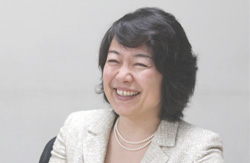
Ohsato: When I launched the company, I also asked an interpreter and a lawyer to act as external directors, so their practical work in these specialized areas was extremely helpful too. Looking back, I realize how brusque I was at handling the personnel. (Laughs) No, I mean I realize how reliant I was on the external directors.
Matsuzaki: My predecessors seemed to have been involved in quite a lot of actual work. I realized there was a huge difference in the role that is expected from external directors in SMEs as opposed to large companies. As for myself, I thought their role was limited to supervising from an external perspective so as to prevent the company from running amok or exceeding its original framework, and also occasionally putting on the brakes as checks and balances to restore the framework. But for younger companies like Arc, it feels like external directors are also an integral part of the driving force: their task is to stimulate growth by temporarily compensating for insufficient work functions, as well as giving advice so as to break through the mold.
Ohsato: At first, I asked the external directors to become chaperones, advisers and offer me fresh perspectives. That was quite a blatant lie, wasn't it? (Laughs)
Feature Interview Index

